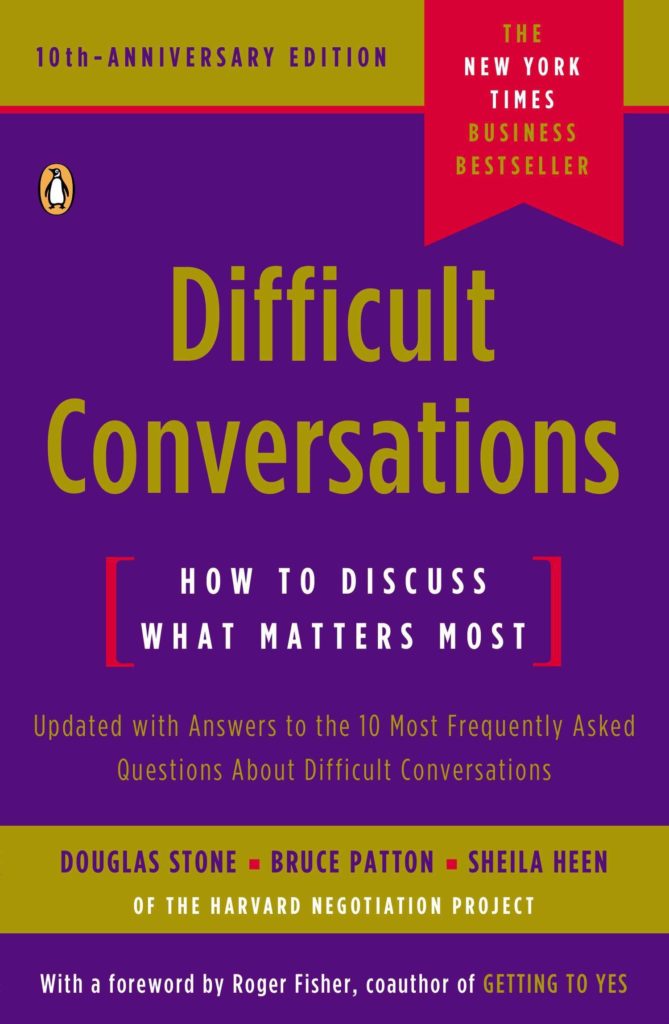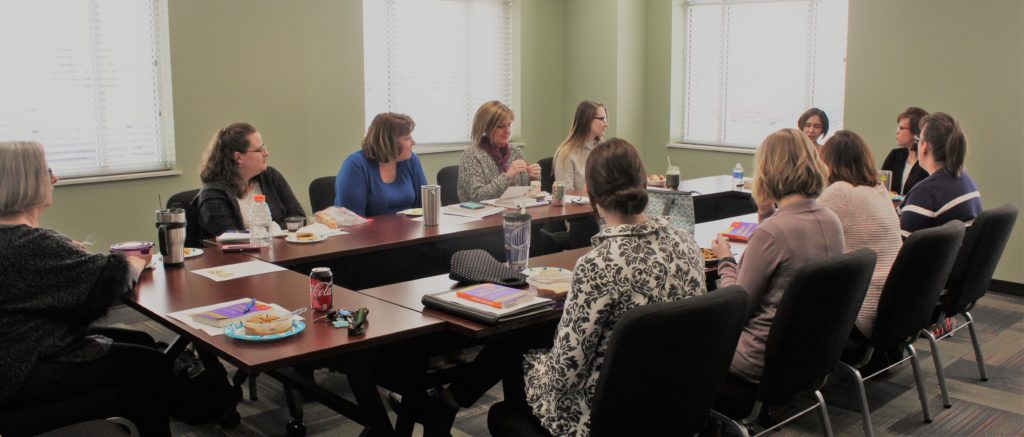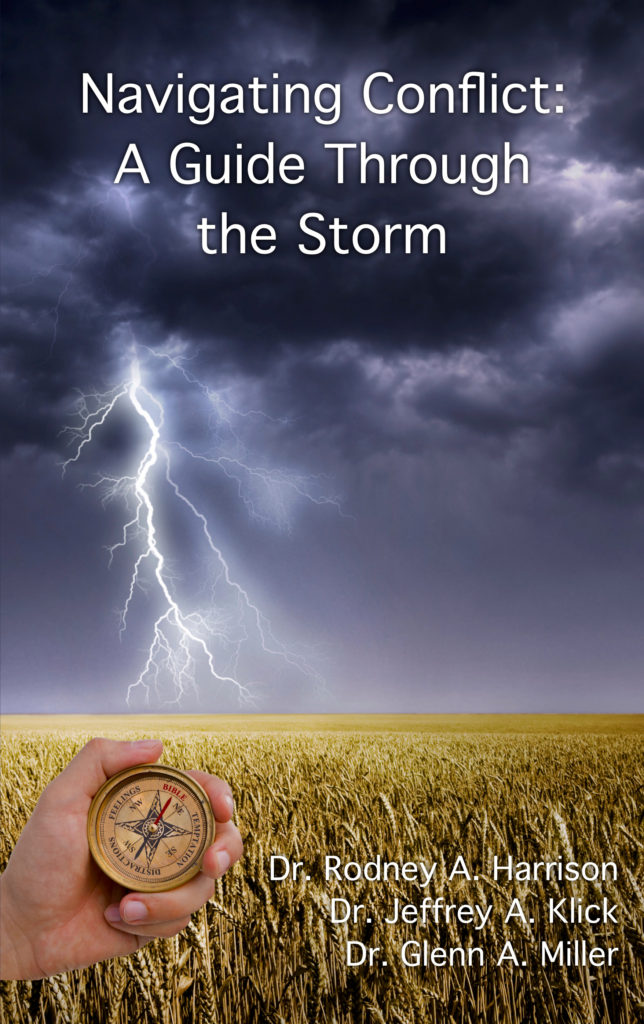September 04, 2019
Book Study: Difficult Conversations
Staff Training:
A while back, the staff of Miller Management had the opportunity to carve out two days of training for all employees by participating in the Global Leadership Summit. We heard from several great speakers and authors on topics like leadership and company culture. As a staff, we took some lunch breaks this year to have a book study from one of the authors that spoke. The topic: difficult conversations. Because can’t we all benefit from getting better at these types of convos.
Here is the book, and a little about the author:
Difficult Conversations: How to Discuss What Matters Most

Sheila Heen’s firm, Triad Consulting Group, works with corporations, non-profits, governments, and teams to strengthen working relationships, work through tough conversations, and make sound decisions together.
Sounds like a light read, amiright? 🙂
Here is what some of the staff thought about the book:
We had some great lunch time discussions on how we can apply the things we read to our work and personal lives. Below are a few quotes from some of the staff.
Reading Difficult Conversations is something I would recommend to anyone! But reading it with a great group of intelligent co-workers is even better. I’ve learned so many great things from this book and from my peers. The concepts in this book apply to my life as an employee, spouse, parent, friend, and family member. I am finding my difficult conversations are getting a little less difficult all the time because of the strategies I’ve learned from this book.
The concept of contribution is sometimes hard to admit. Also, it’s not really about who is “right” and who is “wrong.” It should be about getting to the bottom of what actually happened, not what I feel happened.
The conversation style and storytelling script in this book made it easier to understand and be able to relate the ideas back to my work or home life.
I found some practical application not only for my work conversations, but also conversations with my spouse and kids. The idea of contribution and dealing with your feelings – not ignoring them – can make me a better employee and also teach my kids how to handle themselves better.
This book has really helped me approach difficult conversations more thoughtfully and intentionally. The concept that struck me the most was the complexity of identity: “As for everyone, what is true about you is going to be a mix of good and bad behavior, noble and less noble intentions, and wise and unwise choices you’ve made along the way.” Understanding this idea of complexity, rather than the all-or-nothing concept of “good” and “bad” people, has been beneficial not only to how I view my own identity, but in how I view other people as well – especially in conflict.
Other concepts from the book that were helpful were creating a third story to help prevent bias in addressing the issue, acknowledging each person’s contributions to the situation (including your own), and learning to listen and help the other person feel heard.

Fav Quotes
Some of our staff’s favorite quotes directly from the book…
“The error we make in the realm of intentions is simple but profound: we assume we know the intentions of others when we don’t. Worse still, when we are unsure about someone’s intentions, we too often decide they are bad.”
“Taking responsibility for your contribution up front prevents the other person from using it as a shield to avoid a discussion for their own contribution.”
“Every strong view you have is profoundly influenced by your past experiences.”
“Wherever you want to go, understanding – imaging yourself into the other person’s story – has got to be your first step.”
“As a rule, when things go wrong in human relationships, everyone has contributed in some important way.”
“Depending on how we handle them, feelings can lead to great trouble. But the feelings themselves just are. In that sense, feelings are like arms or legs. If you hit or kick someone, then your arms or legs are causing trouble. But there’s nothing inherently wrong with arms or legs. The same with feelings.”
“Our listening ability often increases remarkably once we have expressed our own strong feelings.”
“On the other hand, engaging someone in a conversation where mutual learning is the goal often results in change.”
Up Next
Going along with this idea, we are excited for this book, also on the topic of conflict: Navigating Conflict: A Guide Through the Storm.

You can grab your copy on Amazon today.

Stay Connected